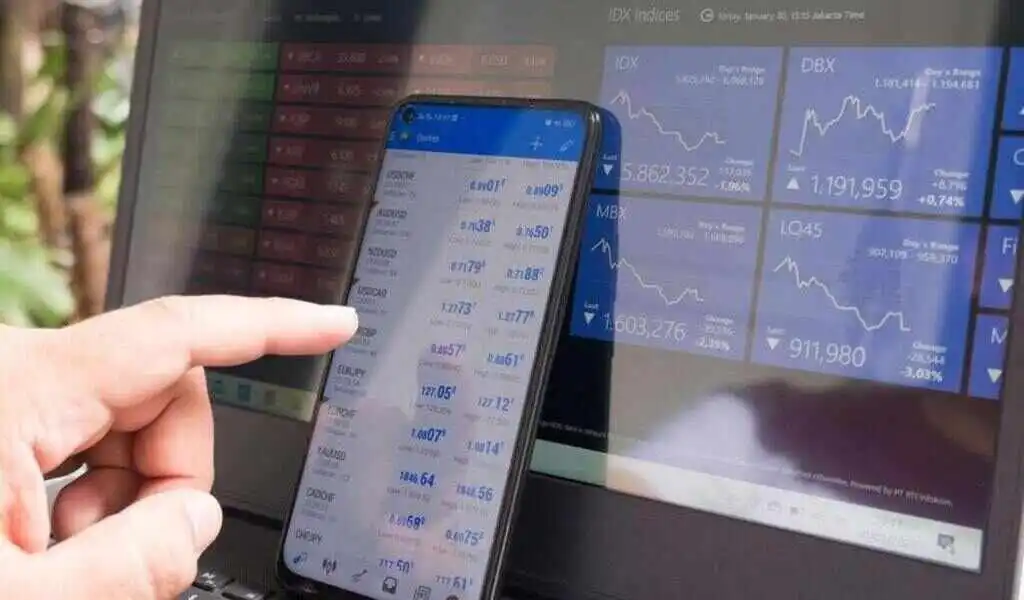Business
How to Start investing in Forex Trading and what I need to get started

In 2022, more people are aware of forex trading than ever before. Meme stocks along with lockdowns meant that many new retail investors joined the hunt to grow their wealth. Whilst some begin with forex trading, many turn to it once they realize it’s way more liquid than other markets – trading doesn’t close for the day when you get home from work.
However, forex is also a volatile market, so it’s important to be prepared. Here are a few tips on how to get started.
Choosing a Strategy
Before we can decide on what to trade and where to trade it, a general strategic approach should be set out. Even if it isn’t yet refined, it’s important to know whether you will be day trading, scalping, or holding your investments for much longer periods. This will help decide from the list of forex brokers to use – the one which suits your strategy.
It’s also important to decide on whether you will be using technical analysis or fundamental analysis – or both. This will help refine what you need to study, as well as help to get to grips with the most relevant tools. From here, it’s all about researching and learning. Forex trading is risky, so we should have a full understanding of the basics before jumping in.
Choosing a Broker
Once we know roughly how we are going to go about trading the currency, we can decide on a broker. Brokers offer many advantages and disadvantages over each other. Whilst one may have fantastic charting capabilities and a small commission, the other may specialize in economic trading signals and no overnight fees. Clearly, the former may be suited more to a day trader whilst the latter a trader that holds for a long time, using fundamental analysis.
It’s also important to ensure the broker is licensed, regulated, and safe. It’s possible to approve of brokers using reviews, and then we can get to the fun stuff – comparing tools, functionality, and promotional offers.
Given that you’re a beginner, it’s better to opt for a cheaper broker with no inactivity fees. You likely do not need the powerful functionality that is accompanied by expensive programs. In fact, it may be wise to opt for a forex broker that has demo account capability, so the strategy can be tested out without risking real money.
Once settling on a broker, it’s highly recommended to spend a few hours just browsing the platform and watching tutorials. You’re much more prone to mistakes, or missing good bits of information if you jump into trading on an unfamiliar platform. There will almost certainly be a plethora of tutorials online on the platform, and they should also cater to the context of your trading methodology.
Track Results and Refine Strategy
It’s important to track your results (preferably from the demo account) and set some fixed rules around exposure. For example, to never hold a position that is more than 10% of your account balance.
It’s unlikely to sustain a profitable strategy in the long run at first. The strategy will need tweaking and refining constantly until results improve. If you are using algorithmic trading, then it may be wise to backtest the strategy too, potentially using the broker you’re using.
It’s also important to not settle on a strategy and stop learning. There will be more indicators, more points of data that we can use, but it’s important to understand their relevance. We may blend fairly novel indicators with more traditional ones to produce a unique strategy for us, but this all takes time.
Remove Emotions from the Equation
A hugely important aspect of trading is controlling our emotions. Trading is meant to be a purely rational game – mostly revolving around numbers – and so any emotion that interferes is likely to our determinant. For example, refraining from chasing losses is an important change in our risk-taking mentality that can be difficult to control.
There are many ways to control this, but we must build worst-case scenarios into our strategy. We must know what to do when everything is going wrong or to have the rule to stick by that stops us from making rash mistakes. Reading and understanding these psychological biases is important to help mitigate them, but it’s also important to create rules and strategies to actively defend against them.
CFDs
CFDs are a way to leverage our exposure in the market given a smaller amount of starting capital. This can mean a bigger reward, but inevitably a bigger risk too. Much of the stock market is derivative trading, so it’s not wise to ignore it entirely. However, CFDs should be traded with great caution and not until you have a more refined understanding of forex trading.
CFDs will likely amplify your current trading record, be it wins or losses, but it’s important to ensure that one week of successful trading has convinced you that the strategy is bullet-proof.





























